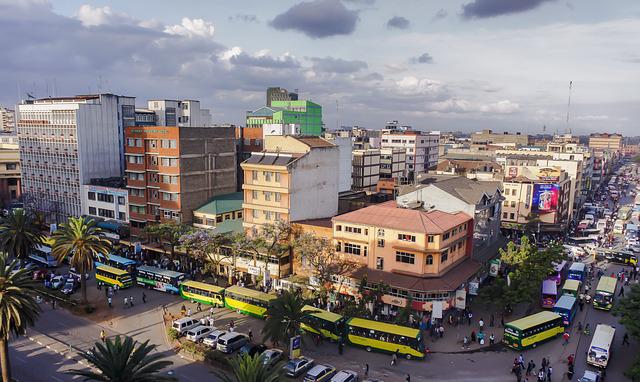
Expat Healthcare in Kenya
In Kenya there is a great disparity between the rich and the poor. Within major cities, where the country’s wealthiest citizens are to be found, there are a number of excellent hospitals. In more rural areas, however, the situation is quite the reverse.
Whilst in theory all Kenyan citizens have access to the universal healthcare system, in reality many Kenyans struggle to receive the care they need. Many authorities complain of widespread corruption and severely limited funding which results in substandard care.
When combined with the number of diseases and infection to be found in Kenya, such as malaria, rabies and HIB, this has resulted in a reduction in average life expectancy and an increase in infant mortality in recent years.
While evidence of improvement is visible in Kenya, visitors and expats alike would do well to fully prepare themselves before arriving so as to assure themselves of the best possible standards of medical care.
Kenya Healthcare System
The Kenya healthcare system is funded by the National Health Insurance Fund, through compulsory payments. Sadly, the funds raised in this manner rarely seem to cover the level of care required from a country with over 44 million residents.
At present Kenya has one of the lowest patient/doctor ratios in the world, with just one medical professional per 10,000 residents. Most of these doctors are focused in and around Nairobi and Mombasa. In the bush this density can be even less. This means that falling ill in more rural areas can be tremendously serious, on account of the lack of medical facilities to be found locally.
The Kenyan healthcare system is broadly divided into two classifications of establishments. On the one hand are the hospitals. Within Nairobi and Mombasa there are a number of international-grade institutions, though many more exist with less-than-stellar reputations.
Secondary to these hospitals are the so-called “dispensaries”. These can be seen as akin to the clinics found in most other countries, apart from the fact that they are typically run by nurses rather than doctors.
Due to the state of the Kenyan healthcare system most expats, travellers and even wealthy Kenyans opt to avoid the under-staffed public facilities with their long queues and instead opt for private treatment. While the costs can be considerable, more modern medical equipment, English-speaking doctors and minimal waiting times normally make these facilities the only viable solution.
Telephone Number of Ambulances in Kenya
As a past British-colony, it should be no surprise that some British culture has rubbed off on Kenyan society. In order to request an ambulance in Kenya simply dial the same number as in the UK – 999 – from any phone.
Visitors should note that the ambulance service, rather like the public healthcare system, is far from efficient. Wait times can be long and under some circumstances it can be more efficient to find alternative transportation to the hospital.
Many private hospitals in Kenya also run their own private ambulance service, with better-equipped vehicles and more highly-trained staff. Expats and long-term tourists can do well to inspect local private establishments in order to find one that they are happy with. Note down the specific telephone number to request an ambulance from this facility and keep it with you at all times just in case.
As an added insurance policy, many expats living in more rural areas opt to take out a policy with a flying doctor.
Such companies offer “air ambulances” where emergency medical care can be flown to you in times of need. Alternatively such a service also facilitates faster transport to hospital in the case of serious medical complications. One of the most highly-regarded such services in Kenya is AMREF Flying Doctors.
While membership of such schemes is not cheap, many people consider it a worthy insurance policy against a country with such unpredictable transport links and medical coverage.
Prescriptions in Kenya
As a further throwback from British occupation, prescriptions in Kenya tend to be dispensed by “chemists” rather than drug stores or alternative names. There are a number of highly-regarded chemist chains to be found in Kenya. Well-known chains include:
- Yaya Chemists
- MedWorld Pharmacies
- TriChem Pharmacies
If in doubt, most chemists can be identified by the “Rx” symbol typically shown on their exterior.
Visitors should note that many hospitals also have chemists attached, and the costs at such premises can often be lower than dealing with a stand-alone facility.
List of Chemists in Kenya
The following chemists are some of the more popular options:
| Chemist Name | Tel No | Address |
|---|---|---|
| MedWorld Pharmacies | +254 020 3862487 | Valley Arcade Shopping Centre, Gitanga Road, Nairobi, Kenya |
| TriChem Pharmacies | +254 20 3871362 | Valley Arcade Shopping Centre, Gitanga Road, Nairobi, Kenya |
| Yaya Chemists | +254 703 114936 | Ground Floor Yaya Centre, Argwings Kodhek Road, Nairobi Central, 00100, Kenya |
Vaccinations Required for Kenya
Kenya has a considerable numbers of diseases and pathogens so appropriate vaccination should be considered critical before visiting. We would advise all potential expats and tourists to seek professional advice in plenty of time to facilitate a full course of injections before arrival in the country.
As a general rule of thumb the following vaccinations are considered worthwhile:
- Diptheria
- Hepatitis A
- Polio
- Tetanus
- Typhoid
Depending on your area of travel and lifestyle choices the following vaccinations may also be recommended:
- Cholera
- Hepatitis B
- Meningitis
- Rabies
- Yellow Fever
Kenya Expat Insurance
Expat health insurance should be considered obligatory for visitors to Kenya. As previously stated, for the best possible care you will likely want to rely on the services of a private hospital in Nairobi or Mombasa. Such treatment does not come cheaply, and without suitable international health insurance the costs of treatment may prove to be a major handicap.
In addition it is worth noting that serious cases may not be best dealt with in Kenya at all. It is not unusual for serious medical cases to be flown to South Africa, where standards of medical care are considerably higher. This 2,000-odd mile trip in a helicopter can cost up to 100,000 USD; well outside the bounds of reason for most people’s cheque book.
While we sincerely hope that being airlifted to a hospital in another country won’t be necessary, if it ever becomes a priority you’ll be glad of having suitable cover.
Many expats working in Kenya have private medical insurance provided by their employer. However if this isn’t the case then you should think hard about the most appropriate service for your needs.
Whoever your provider is, you should carefully check the details of your policy to ensure that it covers medical repatriation if necessary.
List of Hospitals in Kenya
Below you will find a list of some of the more reliable and reputable hospitals to be found in Kenya. Expats are advised to compare the options available in order to find an establishment they can rely on should the need arise.
| Hospital Name | Tel No | Address |
|---|---|---|
| Aga Khan Hospital, Mombasa | +254 (041) 2227710-5 | Vanga Road, PO Box 83013, Mombasa, 80100, Kenya |
| Aga Khan Hospital, Nairobi | +254 20 3662000 | Aga Khan Hospital Building, Third Parklands Avenue, Lumuru Road, Nairobi 00100, Kenya |
| Diani Beach Hospital | +254 (0) 700 999 999 | Box 5074, Diani Beach, Ukunda 80401, Kenya |
| Kenyatta National Hospital | +254 729 406939 | Hospital Road, Upper Hill, Nairobi 00202, Kenya |
| Kijabe Hospital | +254 20 3246500 | PO Box 20, Kijabe, 00220 Kenya |
| Mater Hospital | +254 20 6903000 | Mukenia Road, Nairobi, Kenya |
| Mombasa Hospital | +254 41 2312191 | Kizingo, Mombasa, Kenya |
| Nairobi Hospital | +254 20 2845000 | Argwings Kodhek Road, PO Box 30026, 00100, Nairobi, Kenya |
| Nairobi Women’s Hospital | +254 20 2726821 | Hurligham Medicare Plaza, Argwings Kodhek Road, Nairobi 00202, Kenya |


